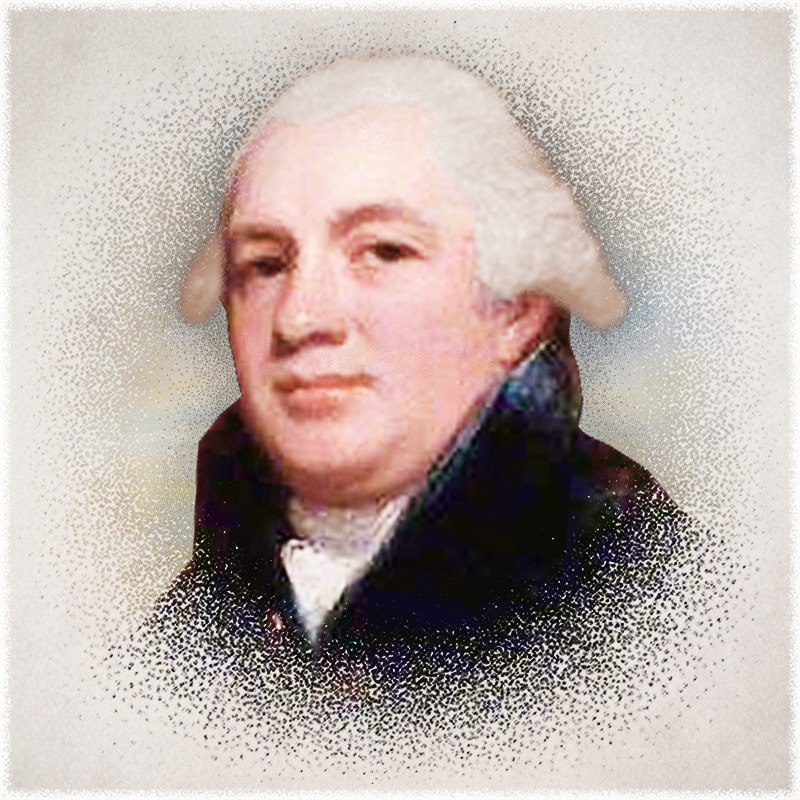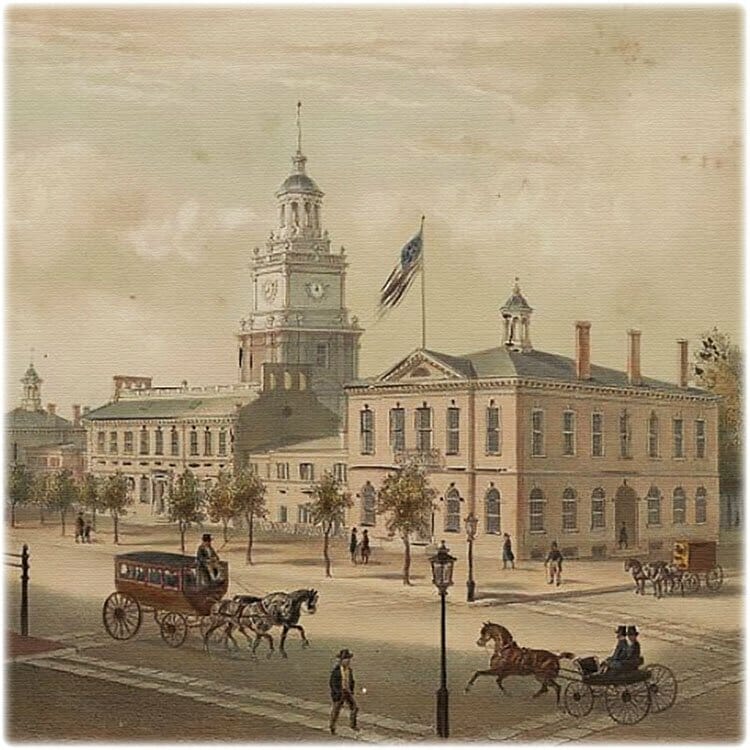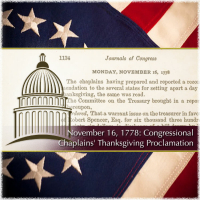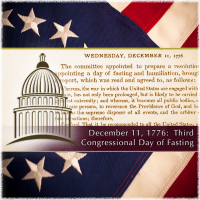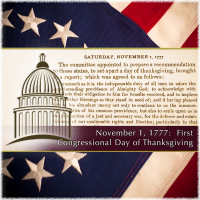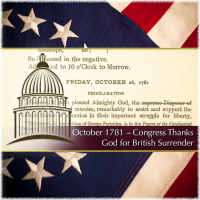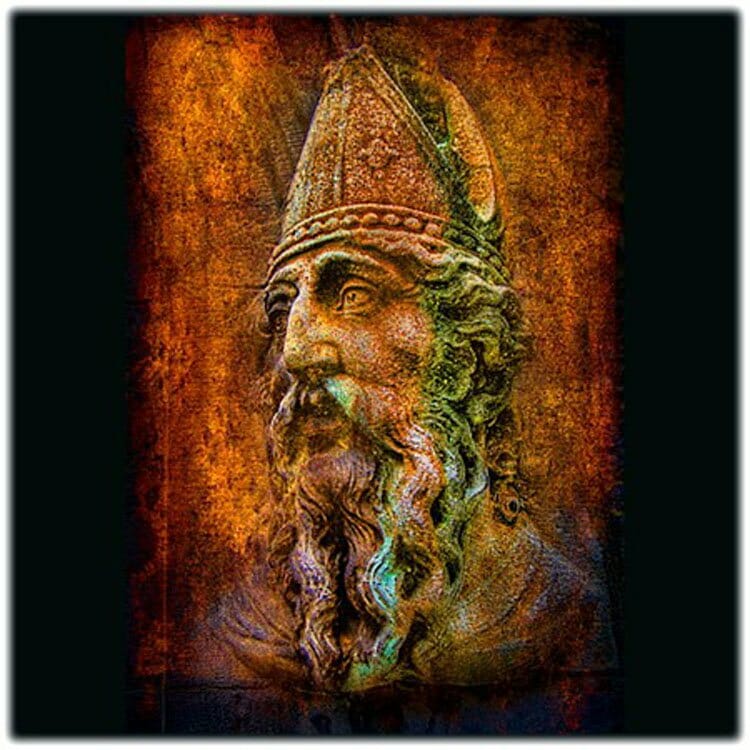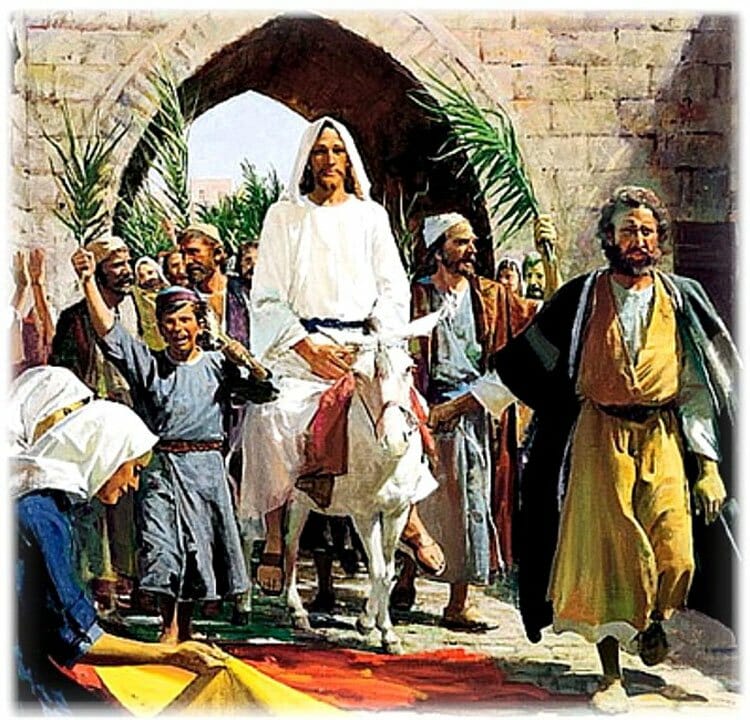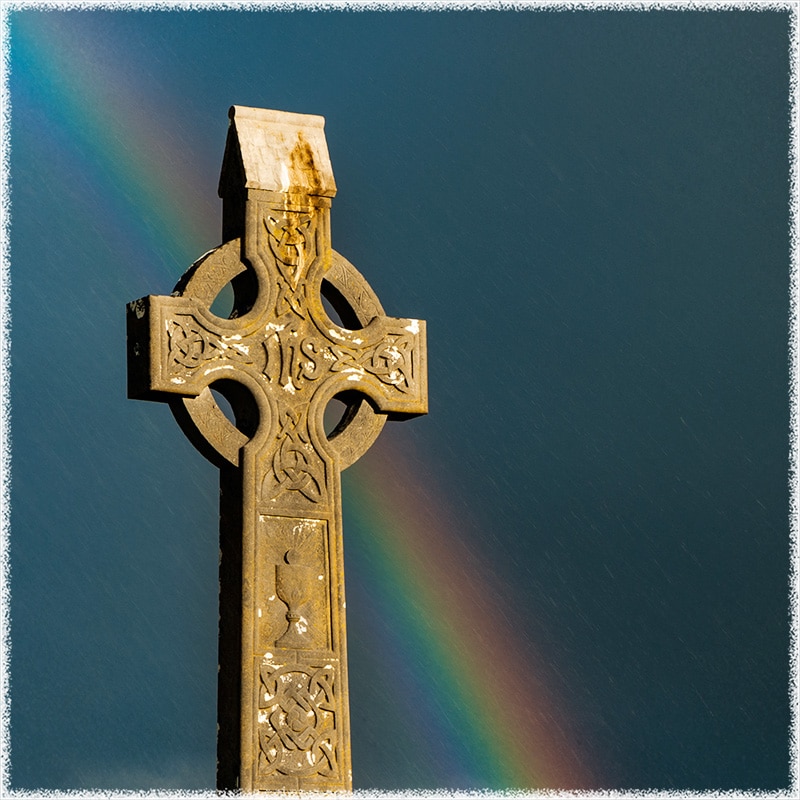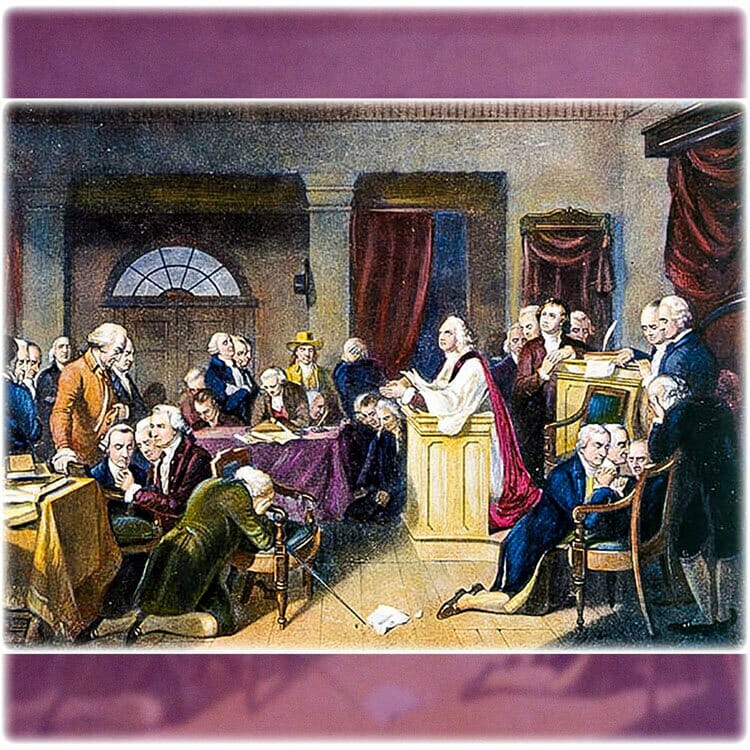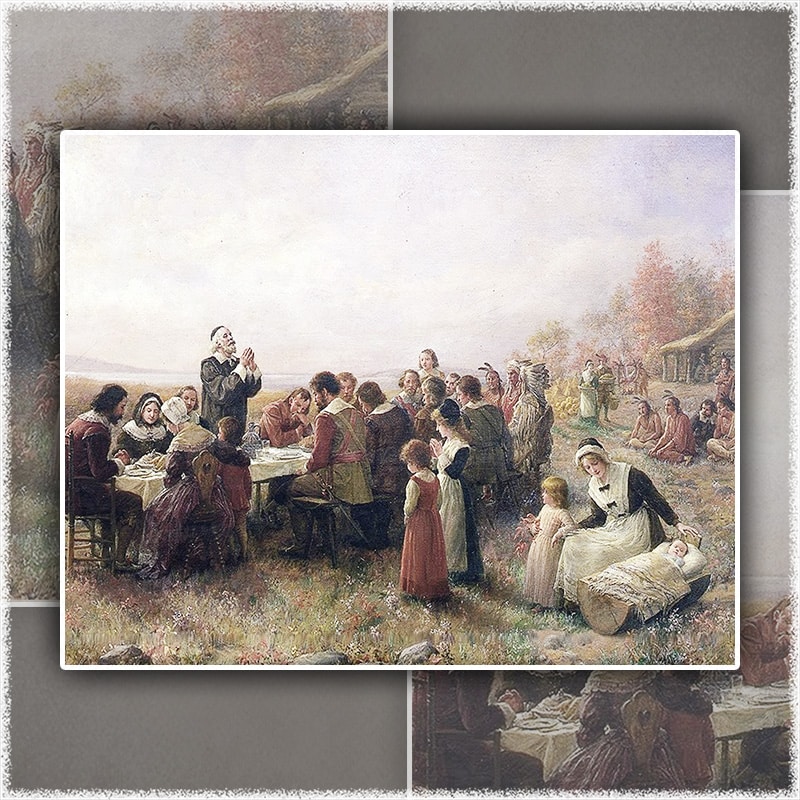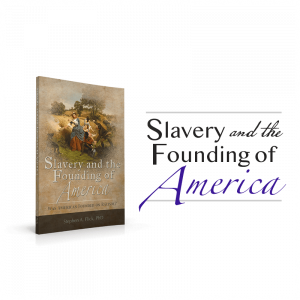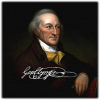Christian Living in March
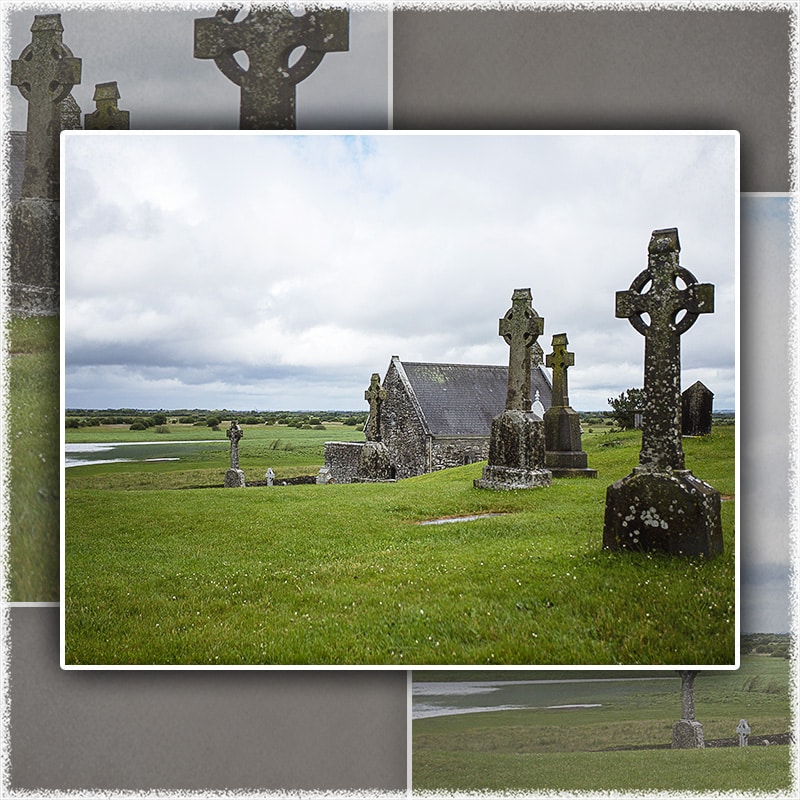
In contemporary America and throughout the world, orthodox or biblical Christian principles and practices are under attack. Though this struggle is not new to the life of Christianity, it is new to many Christians who may be tempted to compromise or completely capitulate in matters of Christian belief and behavior. The Bible is replete with examples of those who compromised or capitulated in this way, but Jesus Christ has warned that only "he who stands firm to the end will be saved" (Matt. 10:22; 24:13; Revelation 2:26). In an age when many professing "Christians" are compromising with a secular world, true believers remain faithful to both the principles and practices that arise out of the Word of God. "Christian Living in March" seeks to inform and inspire believers to practice their faith. Click to read the entire article…Christian Living in March
Many of the suggestions presented in our monthly "Christian Living" articles may be used by individuals, families, or within the context of local churches. These articles are designed to inform and inspire Christians to celebrate their Christian heritage and provide means of spiritual growth. Parents and grandparents may employ some or all of these suggestions in developing a family altar and cultivating a Christian home. Local church leaders will readily recognize suggestions that may be incorporated into the life of their respective congregations.Christian Living in March
What is true of gardening is also true of every level of spiritual life: "What we will not labor to cultivate will soon be taken over by weeds." It is work to maintain the family altar; it is work to have a Christian home. It is also work to cultivate a godly church, and if we are unwilling to diligently labor to maintain a godly life, family, and church, weeds will soon strangle the spiritual life of each!
Article Contents
March is the third month of the year in both the Julian and Gregorian calendars. The equivalent of March in the Southern Hemisphere is September, and in the Northern Hemisphere, March 1st is the beginning of the meteorological spring.
March receives its name from ancient Rome when it was the first month of the year and was called Martius, being derived from Mars or Ares, the Greek god of war. In Mediterranean Rome, March was the first month of spring and was regarded as the logical period to begin military campaigns.
The name of this month, "March," and its pagan origin should cause ardent Christians to re-examine the application of their faith to every-day life. The Greeks and Romans did not hesitate to unite their pagan faith to every aspect of life–including the months of the year. As the Greeks and Romans sought to paganize all of life, let true believers seek to Christianize all aspects of personal, ecclesiastical, and social life. Such an effort is a true civilizing influence.
The birthstones of March are bloodstone and aquamarine, both of which symbolize courage. The birth flower of the month is the daffodil.
In addition to the highlights of this month that are discussed below, additional subjects of interest regarding our Christian heritage are presented online, where they are arranged according to dates of occurrence. The online calendar where these articles are arranged is under continual development with new articles appearing as they become available. By clicking the message box below, readers will navigate to the present month under consideration.
To navigate to our online calendar, please click this box.Observance: Late winter or early spring; February
The Lord has promised that his Word would not return unto Him void or without influence. Though Scripture memorization should be a regular part of personal and family spiritual life, the local church should regularly encourage this effort. Families should be encouraged to continue the practice of biblical memorization in their devotional exercises. However, denominational and local churches should systematically identify times when the special emphasis is placed upon biblical memorization. Though children are frequently the objects of such efforts, adults should not be left out of the effort to make this a regular discipline. Too frequently adults fail to commit the Word of God to memory and are ill-equipped to address moral, spiritual, political, and other issues as they arise in day-to-day life.
Resource for children and adult memorization: Scripture Memory FellowshipObservance: Begins first Sunday in September
Robert Raikes is often credited with having started the Sunday School movement, but it was British Methodist Hannah Ball, a native of High Wycombe in Buckinghamshire, England, who was the first to initiate a Sunday school in 1769.
Christian homes are provided with an example of the necessity of Christian education in the institution of the Sunday school in local churches. Most churches begin a new Sunday School year on the first Sunday in September which continues throughout the year on a quarterly basis (September, December, March, and June). Christian homes should recognize the need to establish the discipline of Christian education, allowing the Sunday school in the local church to remind Christian homes of this important discipline. Allow the beginning of September to remind you of the need to develop Christian education in your heart and home throughout the year, and develop a plan for Christian education for your home!
Spiritual Proclamations of Congress
Remembrance: Congressional Spiritual Proclamations in March
Among the thousands of documents and events that demonstrate America's Christian origin are the sixteen spiritual proclamations issues by Congress during the American Revolution. Following the pattern of fasting, praying, and offering of thanksgiving to God that was use in the New England Colonies, Congress asked the American states to fast and pray in the spring and offer prayer and thanksgiving in the fall of the year. States were asked to invite their citizens to cease their labors and observe the day as proscribed by Congress.
The first of the sixteen spiritual proclamations was issued in late spring on June 7, 1775 and was a fasting and prayer proclamation. The sixteenth and last spiritual proclamation to be issued by Congress on August 3, 1784 was a thanksgiving proclamation.
By far, the most spiritual proclamations to be issued by Congress in any single month was March. In all, six were issued by Congress in the month of March from 1776 to 1782 and are listed below:
Proclamation #2 – March 16, 1776: Prayer and Fasting
Proclamation #5 – March 7, 1778: Prayer and Fasting
Proclamation #7 – March 20, 1779: Prayer and Fasting
Proclamation #9 – March 11, 1780: Prayer and Fasting
Proclamation #11 – March 20, 1781: Prayer and Fasting
Proclamation #13 – March 19, 1782: Prayer and Fasting
Some Articles in This Series:
All sixteen proclamations: When Congress Asked America to Fast Pray and Give Thanks to God
Observance: On or before March 17
St. Patrick was one of the greatest missionaries of the Christian Church. Captured as a young man, Patrick was taken to Ireland where he served his master by tending his swine. After several years, Patrick escaped his bonds of slavery and managed to find his way back home, which is present-day England. Before long, Patrick received a call to return to the land of his captors as a missionary of Christ. Obedient to the leading of God's Spirit, he returned to Ireland to conduct an exemplary ministry. As a result, the British Isles and mainland Europe were greatly influenced by the spiritual descendants of Patrick.
As is true for many of the Apostles, Church history has failed to provide extensive details about many of the early Church's greatest heroes. St. Patrick is among those we wish we were provided with more details concerning his life and ministry, but what is known concerning him evokes deep admiration and respect. Because of the inclination in the human heart to make idols out of individuals and objects, there can be little doubt that God intentionally removed unnecessary obstacles to right worship, and, therefore, obscured detailed information concerning the Churches earliest and most notable leaders. What remains concerning Patrick, however, is sufficient to elicit admiration and encouragement for the contemporary believer.
Please click the box to navigate to our podcast and article on the life of Patrick.Observance: Bishop Thomas Ken passed away on March 19, 1711
Though most Christians may not immediately recognize the name Thomas Ken, his Doxology is widely known and sung throughout Christendom. As a Christian and Anglican Bishop, Ken should also be remembered for his courageous moral stand against the immoral King Charles II. Where Christian leaders fail to take a stand for what is right, church and society greatly suffer under the withering onslaught of mediocrity and spiritual death. Bishop Ken died on March 19, 1711 in the midst of very humble circumstances because of his stand for Christ.
Click this box to navigate to our article on Bishop Thomas Ken: Standing Against the King.Events Surrounding Christ's Triumphal Entry
Remembrance: March 28 and following
The year was 33 A.D., and Jerusalem was preparing to receive thousands of visitors that would throng the streets of the city to observe the Feast of Passover. According to the Western calendar, the events that led up to this observance began at the end of March and are summarized in the list below:
March 28: Six days before the Feast of Passover, Jesus arrived in the village of Bethany, the hometown of Lazarus, whom he had a short time previously raised from the death. That evening, a dinner was prepared in honor of Jesus at the home of Simon the leper (Mark 14:3). Martha, sister of Lazarus, helped to serve the food, and Lazarus was among the dinner guests (John 12:2). Mary, the other sister of Lazarus, brought a jar of very expensive perfume from the essence of nard, imported from India, and anointed the feet of Jesus. You may read the entire account in the Gospel of John 12:1-8.
March 29: Five days before the Feast of Passover, a large crowd of Jews discovered Jesus was at Bethany and came to see him and Lazarus, who Jesus had earlier raised from the dead. Because many began to place faith in Jesus, the Jewish religious leaders began to plot the death of both Jesus and Lazarus (John 12:9-11).
March 30, The Triumphal Entry: Four days prior to the Feast of Passover, Jesus set out for Jerusalem, sending two of his disciples on ahead to locate a donkey for him to ride into the city. The disciples located the donkey and its colt, brought them to Jesus, and threw their garments over the colt for Jesus to ride (Matthew 21:2-7). Along rode down from the Mount of Olives, crowds spread their garments upon the ground and strewed the road with palm branches, shouting and praising the Lord, saying "Bless the King who comes in the name of the Lord!" Just as David had ridden into the city a little more than a millennium earlier (1 Kings 1:33-46), Jesus conducted this symbolic act to demonstrate that he was the greater son of David who would assume David's throne. Unlike Islam, Christianity is the fulfillment of prophecies recorded in the Older Testament, specifically the coming of the Messiah:
More than five hundred years earlier God had revealed to the prophet Daniel that 483 years after the command to rebuild Jerusalem the Messiah would come (Daniel 9:25). King Artaxerxes of Persia gave the command to rebuild Jerusalem in the month of Nisan in the twentieth year of his reign (Nehemiah 2:1). The Jews did not use a solar calendar as we do today, and in biblical prophecies the years are composed of 360 days (Revelation 11:2, 3; 12:6; 13:5). The exact day of the month is not given, but if the command to rebuild Jerusalem was given on the first of Nisan, March 5, 444 B.C., it was 483 years of 360 days later to the day, March 30, A.D. 33, that Jesus formally entered the city as the Messiah. The prophecy likely was fulfilled to the day![1]
For further details concerning the events of this week, please see our article: Holy Week–Christianity's Most Sacred Season.Observance: Holy Week
Two special services are offered for use during Holy Week–Service of the Cross and Tenebrae: A Service of Darkness. Though it is unlikely that both services would be used in any single year, they are presented below for the consideration of pastors and their congregations.
The Service of the Cross may become a powerful Maundy Thursday or Good Friday tradition within your church.[2] As members of the congregation enter the place of worship, they are given a worship folder with a square nail tethered to a piece of paper. The plan of salvation is artfully related through a series of reading. Then, worshippers are instructed to write on the paper any sin or sorrow which should be given to the Lord, and at the appointed time in the service, they are invited to drive their nails in a place of their choosing on the cross placed at the front of the sanctuary. This simple act is intended to express contrition and repentance for sin and a confidence that the cross of Christ was sufficient to bear the sins and sorrows of the entire world. The impression of hammers striking the nails is a very sobering one. Served with the elements of the Lord's Supper, this service will live long in the hearts of worshippers. The service, including communion, is about an hour in length.
Our publication to host a solemn Holy Week service: A Service of the Cross
Tenebrae: A Service of Darkness
Observance: Holy Week
In far too many churches, the frenetic personal schedules of many believers does not make allowance for participation in meaningful and symbolic dramatic presentations. This fact often robs the individual and congregation of some of the most important moments in personal and collective worship. One of the ways to reverse this trend and achieve a balance between personal schedules and meaningful drama in the church is through scripted dramatic presentations, and the Easter season provides opportunity that is seldom equaled and never excelled in the Church year.
A Tenebrae Service is an attempt to dramatize the closing days of Christ's ministry on earth leading up to and including the events of Good Friday. This service begins in light, commemorating the significant events of Christ's movement toward the cross, and culminates in darkness expressive of the extinguishing of the physical life of the Messiah of the world, Jesus Christ. Few experiences bring the audience to the awareness of the spiritual realities of the Easter season.
First week of March: No cussing/swearing week. See our article, Will a Little Dirt Hurt?
1789, March 2: Last session of the Continental Congress at Fraunces Tavern is adjourned sine die. Philip Pell of New York was the sole member in attendance
1775, March 23: To avoid interference from Lieutenant-Governor Dunmore and his Royal Marines, the Second Virginia Convention met March 20, 1775 inland at Richmond--in what is now called St. John's Church--instead of the Capitol in Williamsburg. Delegate Patrick Henry presented resolutions to raise a militia, and to put Virginia in a posture of defense. Henry's opponents urged caution and patience until the crown replied to Congress' latest petition for reconciliation.
1857, March: In March 1857, the Supreme Court issued its decision in Dred Scott versus Sandford. Chief Justice Roger B. Taney opined that blacks were not citizens, and derived no rights from the Constitution. Lincoln denounced the decision, alleging it was the product of a conspiracy of Democrats to support the Slave Power. Lincoln argued, "The authors of the Declaration of Independence never intended 'to say all were equal in color, size, intellect, moral developments, or social capacity', but they 'did consider all men created equal–equal in certain inalienable rights, among which are life, liberty, and the pursuit of happiness'."
1861, March 4: Abraham Lincoln was sworn in as president.
[1] E. Michael Rusten and Sharon O. Rusten, The One Year Book of Christian History (Wheaton, IL: Tyndale House Publishers, 2003), 181.
[2] Rev. Stanley Key, pastor of Loudonville Community Church, Loudonville, New York first shared this idea with the author. See their website: http://www.lcchurch.org/.
Christian Living in March
Christian Living in March
Christian Living in March
Christian Living in March
Christian Living in March
Christian Living in March
Christian Living in March
Christian Living in March
Christian Living in March
Christian Living in March
Christian Living in March
Christian Living in March
Christian Living in March
Christian Living in March
Christian Living in March
Christian Living in March
Christian Living in March
Christian Living in March
Christian Living in March
Christian Living in March
Christian Living in March
Christian Living in March
Christian Living in March
Christian Living in March
Christian Living in March
Christian Living in March
Christian Living in March
Christian Living in March
Christian Living in March
Christian Living in March
Christian Living in March
Christian Living in March
Christian Living in March
Christian Living in March
Christian Living in March
Christian Living in March
Christian Living in March
Christian Living in March
Podcast: 'Christian Living in March,' by Dr. Stephen Flick.



